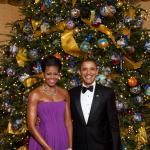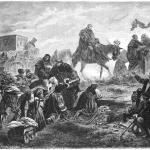The idea of abandoning evangelicalism is not new.
How is it that a religious movement, begun in the decade after World War II, that appears to be running out of gas, caught on at exactly the same time with people who would normally rank as some of the most skeptical and irreligious? One obvious answer is politics. Evangelicalism came to national attention when believers claiming that identity entered the drama (stage right, of course)of electoral politics. That occurrence gave academics who study religion in the United States lots of material to analyze. The emergence of evangelicalism as a political lobby may have also spelled the demise of this particular faith because it diverted born-again Protestants attention from spiritual to temporal realities. The last claim is clearly contested and involves questions about the nature of Christianity and a believer’s social duties. Still, the simultaneity of dissatisfaction among people in the pew (and some in the pulpit) with evangelicalism and born-again Christianity’s value as a tool of scholarly analysis is striking. It is a coincidence that invites reflection on the way Protestant leaders and academics have used the evangelical label. First, it was a concept that first less belligerent fundamentalists constructed to fashion an alternative to the mainline churches (read: liberal Protestantism), and second scholars eventually adopted it as a way to account for greater nuance within American Protestantism. As a construction, however, post-World War II evangelicalism has always been little more than an abstraction. It lacked the specificity of institutional life where card carrying members pay dues and live with the threat of certain sanctions. Evangelicalism has no post office box. There is no there there.
Abstractions have their usefulness, however. Over the last six decades of the twentieth century evangelicalism proved its resourcefulness primarily as a category that signified numerical mass and therefore influence. For born-again Protestants evangelicalism provided a sense of belonging to a movement much larger than the local congregation or even the national denomination. Evangelical Protestantism represented the whole spectrum of conservative Protestants who would not bow to the memoranda coming out of the National Council of Churches. It also stood for the faith of regular Americans, mainstream ones — in today’s vernacular, Red America in contrast to the mainline’s Blue America. As such, evangelicalism gave vigor to Protestants who lacked the Protestant establishment’s considerable clout. It also motivated those Protestants who identified with the movement to band together and recover the United States’ religious heritage. These were stimulants that obviously Lutheranism, Anglicanism, Presbyterianism or Pentecostalism, for instance, could not provide. Denominational labels left Protestants divided. The abstraction evangelicalism promised unity and more — unity for action.
For scholars evangelicalism functioned in a similar manner. Why write about one slice of the American population, say the Baptist piece of the pie, when evangelicalism could lead to larger claims about a broader cross-section of United States’ citizens? The question that haunts most academics is “so what?” Is the subject of study really significant? One relatively easy way to answer this question is to find a topic that involves many people, meaning millions rather than thousands. By studying evangelicalism, a designation that was much larger than any of the denominational categories with perhaps the exception of Roman Catholicism, historians, sociologists and pollsters could write books and articles that made much bigger claims about the doings of American religion than if they had been interpreting United States’ religious life along narrowly denominational or congregational lines. Evangelicalism not only provided the basis for wider affirmations about American religion. It also yielded a bigger audience. Even though Baptists and Methodists continue to top the lists of the largest denominations in the United States, imagine the difficulty of persuading a publisher to take a book on Methodism or Baptists when evangelicalism could work just as well and might attract not only Methodists and Baptists but also Presbyterians, Pentecostals, Congregationalists, and independents.
Evangelicalism, then, has provided a valuable service for believers, academics, and retailers. It has supplied a collective sense of identity to religious adherents and yielded a scholarly perspective on American religion with more nuance than previous interpretations. But as useful as evangelicalism may have been, its usefulness is no longer obvious. In fact, its harmfulness may be what has become most apparent of late.
Today the term evangelical in the USA means (supposedly) conservative in politics, and hence “Votes Republican.” This definition is not going away. The political folks have won.
Let the political evangelicals have the term.
Everyone else walk away. Call yourself something else. Perhaps Christian will come back in vogue. Maybe our denominational affiliation will work — I can call myself Anglican. You may be Presbyterian or Methodist. Maybe using those terms will help us bury the term “evangelical.”
The one thing I despise about Christianity in the USA is its aligning with a political party. Mainliners have done it; they’re Democrats. Evangelicals have followed suit; they’re Republicans. Politicization is accomplished.
Let the rest of us call ourselves Christians.












